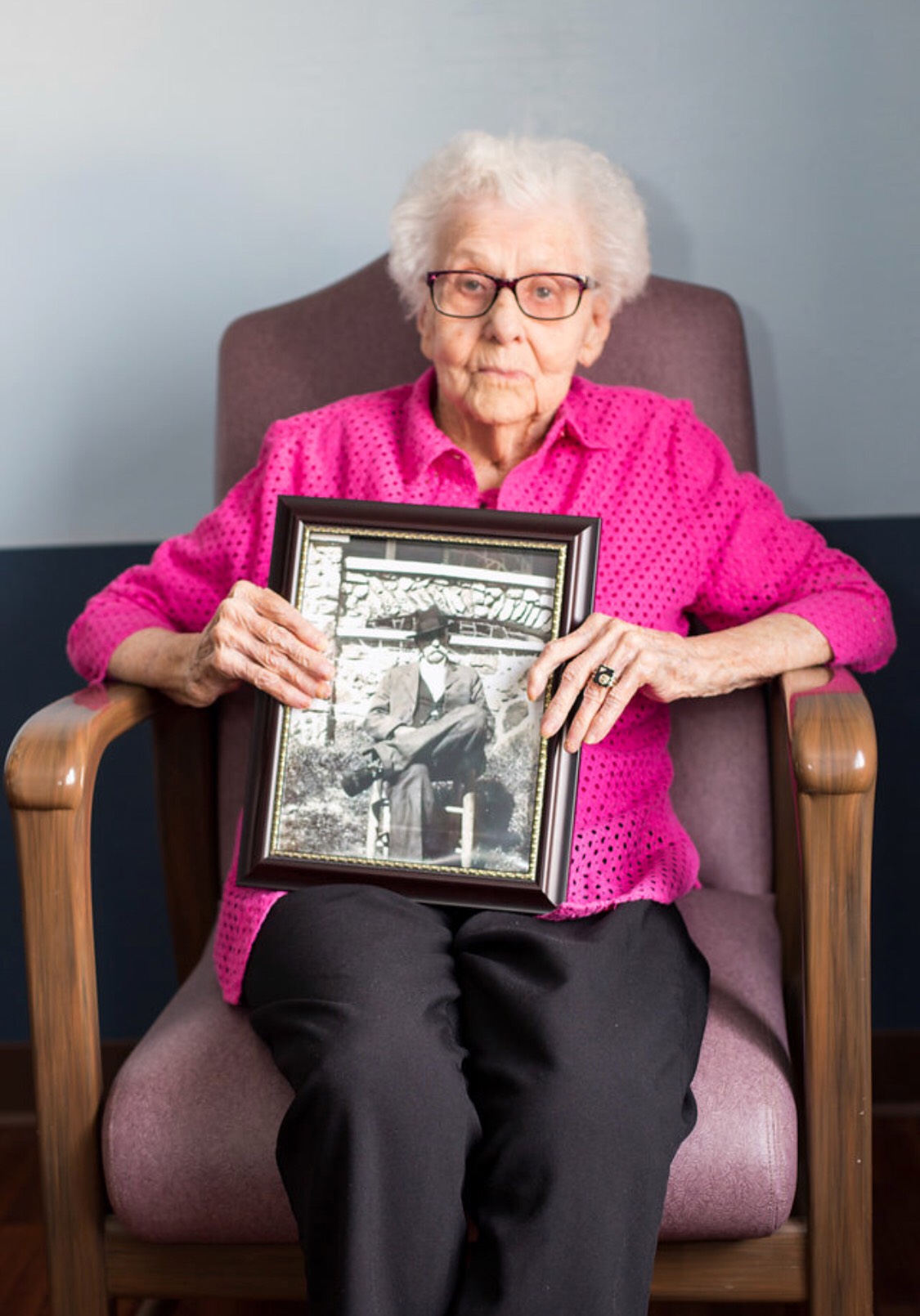Helen Viola Jackson, the last known widow of a Civil War soldier, has died. She was 101 years old and had been living in Webco Manor Nursing Home in Marshfield, Mo. She passed away on Dec. 16, according to a statement by the Sons of Union Veterans of the Civil War.
Jackson had been married to James Bolin, a Civil War veteran who served as a private in the 14th Regiment, Missouri Cavalry. Jackson never remarried nor had children and kept her association with Bolin largely under wraps. It was not until 2017 that she chose to share her life story with her minister.
Just 17 at the time of her marriage to 93-year-old Bolin in 1936, Jackson had been providing daily care for the aging veteran. Her father volunteered to have Jackson stop by Bolin’s house each day on her way to school and assist him with chores, according to a post by the Missouri Cherry Blossom Festival in Marshfield, Mo.
Unable to pay her for her assistance, Bolin, who “did not believe in accepting charity,” asked Jackson “for her hand in marriage as a way to provide for her future,” according to the statement.
Despite the large age gap, such marriages weren’t uncommon in the 20th century, with young women seeking financial protection and aging veterans seeking care.
And while the Civil War may feel like a bygone era, it was only last May that Irene Triplett, the last person receiving a pension from the Civil War, died.
Jackson, however, is believed to be the last surviving Civil War bride.
The pair wed with little fanfare and in front of few witnesses on September 4, 1936, at Bolin’s Niangua, Mo., home. The Daughters of the Union Veterans recently confirmed Jackson’s marriage using historical documents including a signed affidavit from the last living witness to the nuptials, according to Missouri Cherry Blossom post.
“He said that he would leave me his Union pension,” Jackson later explained in an interview with Historian Hamilton C. Clark. “It was during the depression and times were hard. He said that it might be my only way of leaving the farm.”
Although entitled to Bolin’s pension after he died on June 18, 1939, Jackson never applied for the government assistance. One of Bolin’s daughters from his previous marriage to Elizabeth Davenport Bolin (1842-1922) threatened to have Jackson’s reputation ruined by portraying her as a schemer who married the infirm Bolin for financial gain. As a result, Jackson never claimed her status as a war bride.
“All a woman had in 1939 was her reputation,” Jackson recounted, according to the Missouri Cherry Blossom Festival post. “I didn’t want them all to think that I was a young woman who had married an old man to take advantage of him.”
Despite the marriage, Jackson continued work on her family farm and never changed her last name. She lived out the rest of her life quietly but never forget Bolin’s generous act.
“Mr. Bolin really cared for me,” Jackson told Our America Magazine last October. “He wanted me to have a future and he was so kind.”





